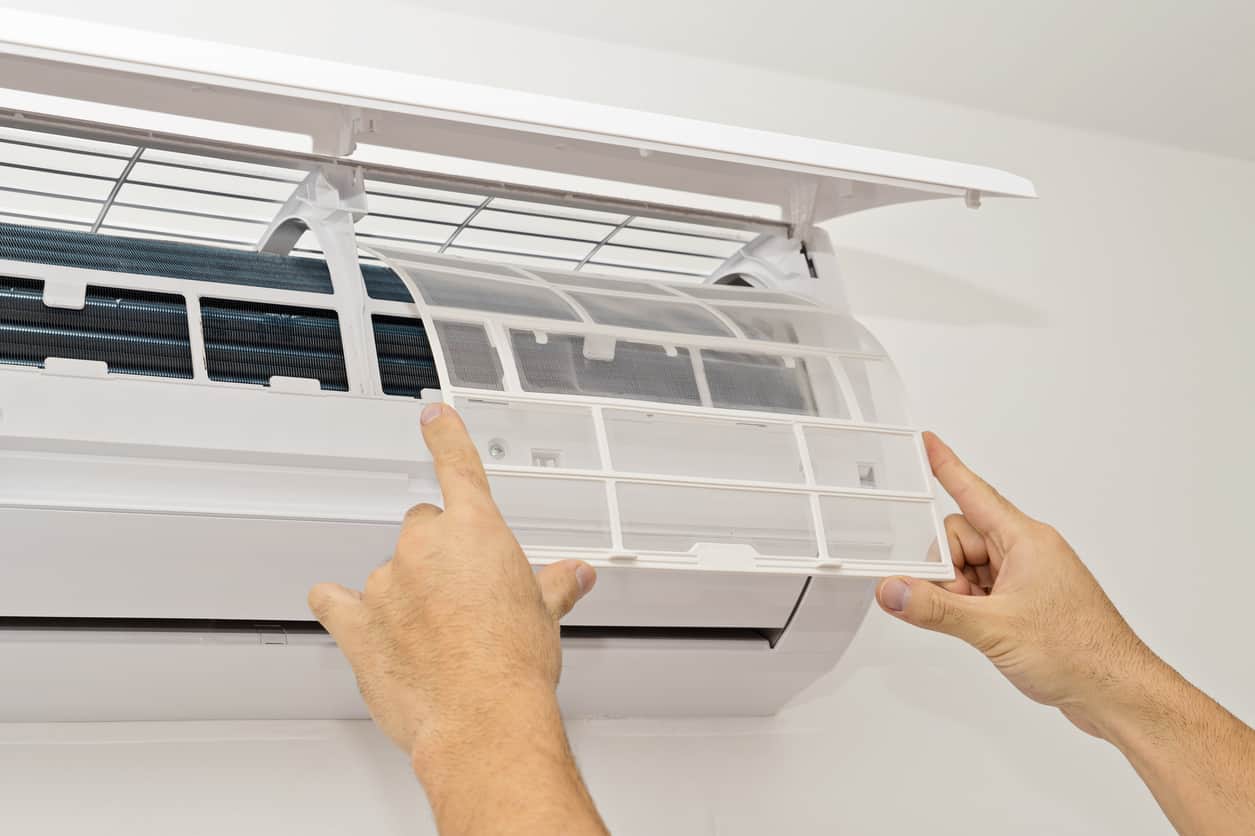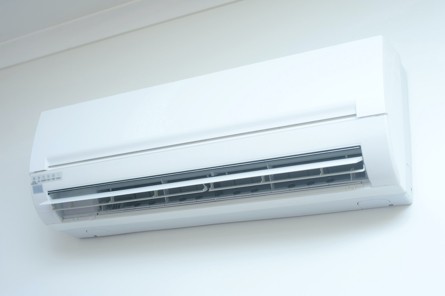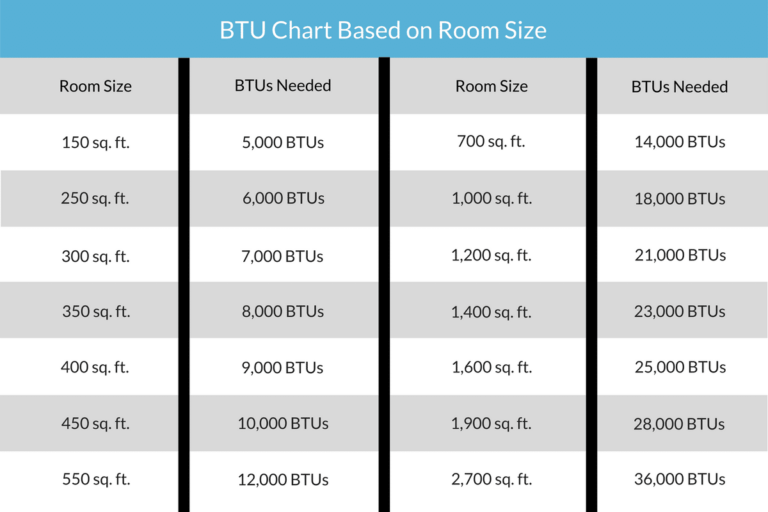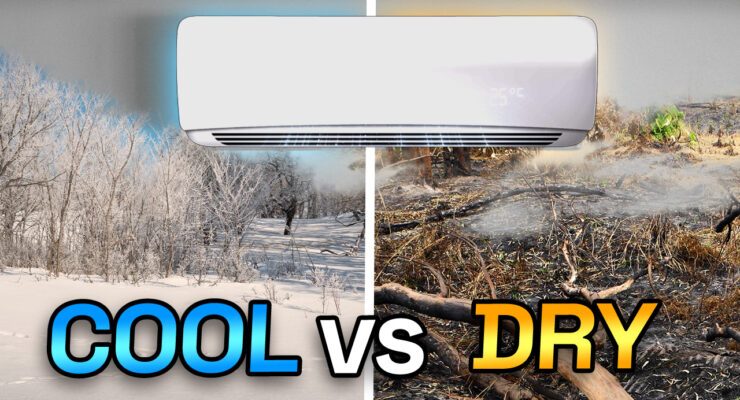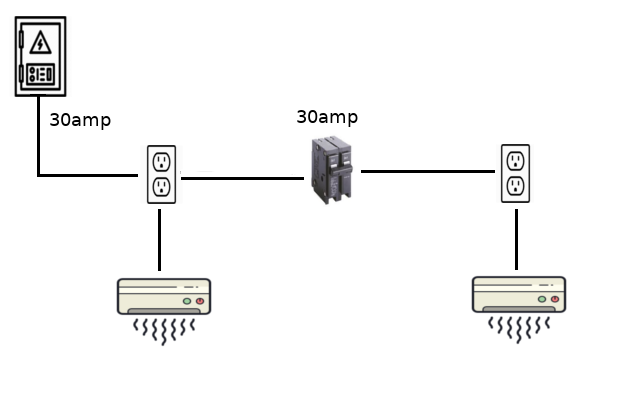Can I Get Carbon Monoxide Poisoning From My Air Conditioner? Find Out
You cannot get carbon monoxide poisoning from a standard air conditioner. Air conditioners do not produce carbon monoxide.
Air conditioners work by circulating air and cooling it through a refrigeration cycle. They do not burn fuel or produce combustion gases, which are the main sources of carbon monoxide. This harmful gas is typically produced by appliances that burn fuel, such as gas heaters, stoves, and furnaces.
Ensuring proper ventilation and regular maintenance of these fuel-burning appliances is crucial for preventing carbon monoxide buildup in your home. Always install carbon monoxide detectors to monitor air quality and protect your family from potential poisoning. Regular checks and professional maintenance of all household appliances enhance safety and peace of mind.
Understanding Carbon Monoxide
Carbon monoxide is a dangerous gas. It can cause serious health problems. Understanding this gas is very important. Let’s learn more about it.
What Is Carbon Monoxide?
Carbon monoxide is a colorless, odorless gas. It is very harmful. The gas can make you very sick. High levels can even be fatal.
This gas is produced when fuels burn incompletely. Fuels like gas, wood, coal, or oil produce carbon monoxide.
Sources Of Carbon Monoxide
Carbon monoxide can come from many sources. Here are some common sources:
- Gas stoves
- Fireplaces
- Furnaces
- Car engines
- Generators
It is important to know these sources. This helps in preventing carbon monoxide poisoning.
Air conditioners generally do not produce carbon monoxide. They work differently from the sources listed above. Air conditioners use electricity, not fuel. So, they are safe from carbon monoxide risk.
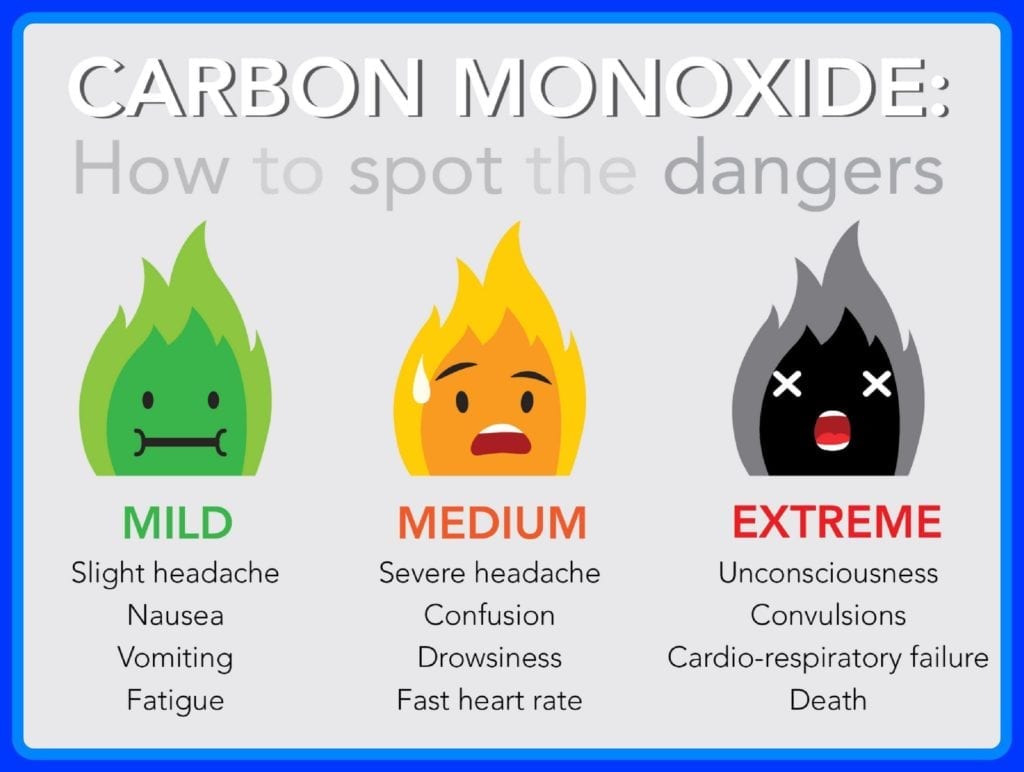
Credit: arctichc.com
Air Conditioners And Carbon Monoxide
Many people worry about carbon monoxide poisoning from their air conditioner. This fear often arises from misunderstandings about how air conditioners work. Let’s explore the truth behind this concern.
How Air Conditioners Work
Air conditioners cool your home by removing heat from the air. They use a refrigeration cycle involving a compressor, condenser, and evaporator. The process does not create carbon monoxide.
Air conditioners are electric-powered devices. They don’t burn fuel like gas or oil. Only devices that burn fuel can produce carbon monoxide.
For a better understanding, here’s a simple table:
| Device | Power Source | Carbon Monoxide Risk |
|---|---|---|
| Air Conditioner | Electric | None |
| Gas Furnace | Gas | Yes |
| Space Heater (gas-powered) | Gas | Yes |
| Electric Heater | Electric | None |
Common Misconceptions
Many people mistakenly think air conditioners can produce carbon monoxide. This misconception stems from confusion between air conditioners and other appliances.
Here are some common myths debunked:
- Myth: Air conditioners burn fuel.
- Fact: Air conditioners use electricity, not fuel.
- Myth: Any cooling device can produce carbon monoxide.
- Fact: Only fuel-burning devices produce carbon monoxide.
Understanding these points can ease your worries. Your air conditioner is safe from producing carbon monoxide.
Risks Of Carbon Monoxide Poisoning
Can an air conditioner cause carbon monoxide poisoning? The risk exists, but it’s rare. Air conditioners themselves don’t produce carbon monoxide. But, they can indirectly contribute to the problem. Faulty or poorly maintained units can lead to hazardous situations.
Understanding the risks is crucial. Carbon monoxide (CO) is a silent killer. It’s colorless and odorless. This makes it hard to detect without proper equipment. Always be aware of the potential dangers.
Symptoms To Watch For
Recognizing the symptoms of CO poisoning can save lives. Here are the key signs:
- Headaches: A common early symptom.
- Dizziness: Feeling lightheaded or unsteady.
- Nausea: Often mistaken for food poisoning.
- Shortness of Breath: Difficulty breathing properly.
- Chest Pain: May feel like pressure or tightness.
- Confusion: Trouble thinking clearly or concentrating.
- Loss of Consciousness: In severe cases, can lead to fainting.
Long-term Health Effects
Long-term exposure to carbon monoxide is dangerous. It can cause lasting health issues. Here are some potential long-term effects:
| Health Effect | Description |
|---|---|
| Brain Damage | CO can reduce oxygen to the brain. This leads to permanent damage. |
| Heart Problems | Chronic exposure can weaken the heart. This increases the risk of heart disease. |
| Organ Failure | Long-term exposure can harm vital organs. This includes the liver and kidneys. |
| Respiratory Issues | Breathing in CO can cause chronic respiratory problems. |
Prevention is the best strategy. Regularly inspect and maintain your air conditioning unit. Use CO detectors to monitor your home. Stay informed and keep your family safe.
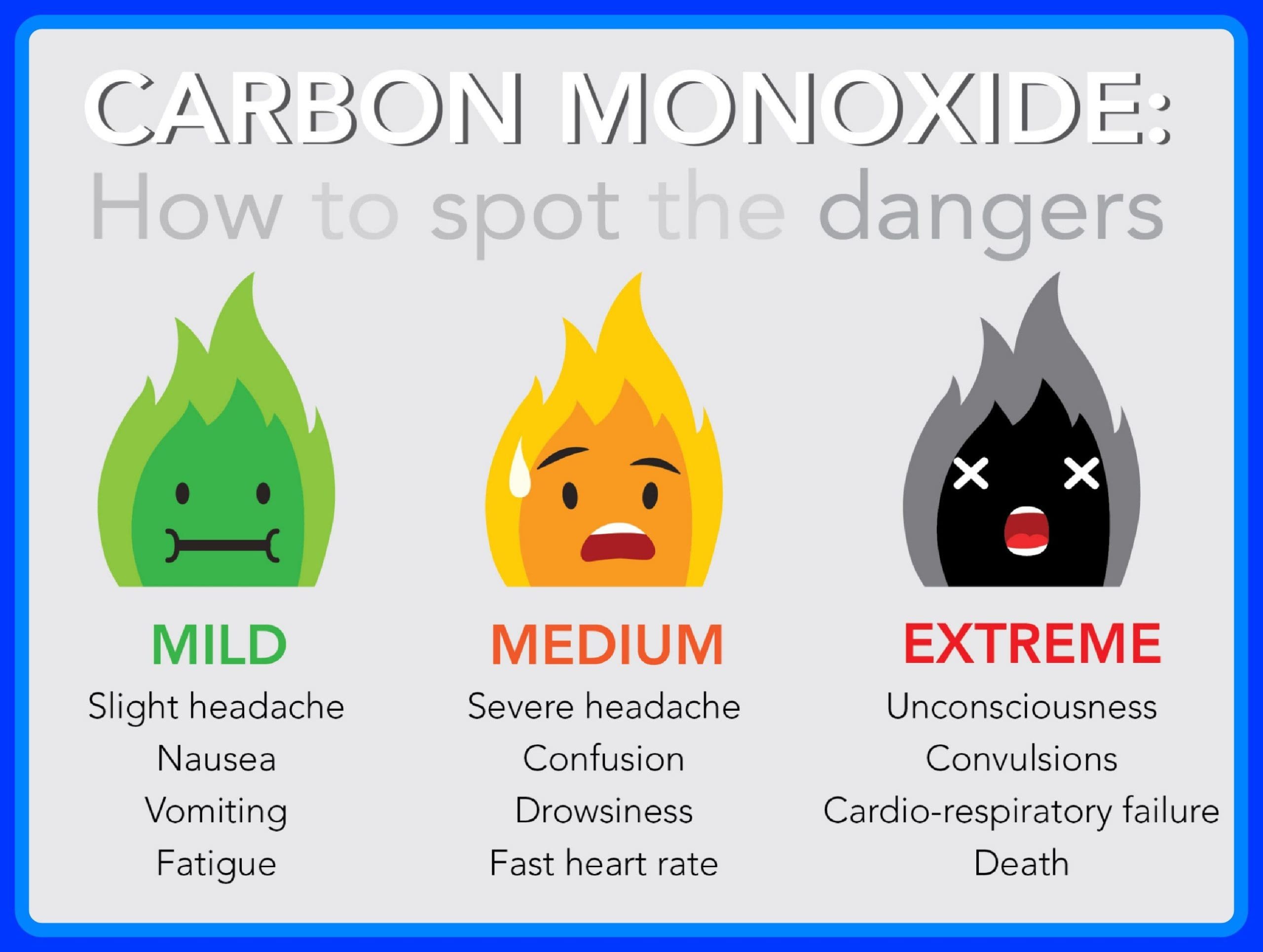
Credit: dehartplumbing.com
Preventing Carbon Monoxide Poisoning
Carbon monoxide poisoning is a serious risk. It’s crucial to prevent it. This can be done through proper ventilation and regular maintenance. Let’s explore these two methods in detail.
Proper Ventilation
Proper ventilation is key to preventing carbon monoxide buildup. Ensure your home has enough airflow. Open windows and doors to allow fresh air in. Install exhaust fans in areas like kitchens and bathrooms. This helps remove harmful gases. Make sure vents are not blocked by furniture or debris.
Check your home’s ventilation system regularly. Replace filters as needed. This keeps the air clean and safe to breathe. Use carbon monoxide detectors in your home. These devices alert you if gas levels become dangerous. Place them near sleeping areas for extra safety.
Regular Maintenance
Regular maintenance of your air conditioner is essential. Schedule annual inspections with a professional. They will check for leaks and other issues. Clean your air conditioner’s components regularly. This ensures it works efficiently and safely.
Replace old or damaged parts promptly. This prevents potential carbon monoxide leaks. Keep the area around your air conditioner clean and clear. This allows for proper airflow and reduces the risk of gas buildup.
Follow the manufacturer’s instructions for maintenance. This ensures your unit operates safely. Keep a maintenance log to track inspections and repairs. This helps you stay on top of necessary upkeep.
| Maintenance Task | Frequency |
|---|---|
| Filter Replacement | Every 3 Months |
| Professional Inspection | Annually |
| Component Cleaning | Every 6 Months |
| Check for Leaks | Annually |
Ensuring proper ventilation and regular maintenance can prevent carbon monoxide poisoning. This keeps your home safe and your family healthy.
Carbon Monoxide Detectors
Carbon monoxide (CO) is a dangerous gas. It can cause serious health issues. Air conditioners usually don’t produce CO. But, having a carbon monoxide detector is crucial. It can save lives by alerting you to CO presence.
Types Of Detectors
There are different types of carbon monoxide detectors. Each has its own benefits. Let’s explore them:
- Battery-operated Detectors: These are easy to install. They work even during power outages.
- Plug-in Detectors: These plug into wall outlets. They often have battery backup.
- Hardwired Detectors: These connect to your home’s electrical system. They also have battery backup.
- Smart Detectors: These connect to your smartphone. You get alerts even when you’re not home.
Installation Tips
Proper installation is key for effective detection. Here are some tips:
- Install detectors near sleeping areas. This ensures you hear the alarm.
- Place detectors on every level of your home. CO can spread quickly.
- Avoid installing detectors near appliances. This reduces false alarms.
- Follow the manufacturer’s instructions. Each detector may have specific needs.
- Test your detectors monthly. Ensure they are working properly.
Remember, carbon monoxide detectors are essential. They keep you and your family safe. Don’t neglect this important device in your home.
What To Do In Case Of Exposure
Carbon monoxide (CO) is a dangerous gas that can cause serious health issues. If you suspect CO exposure from your air conditioner, immediate action is crucial. This section outlines the steps to take if exposed to CO.
Immediate Steps
- Leave the area immediately if you suspect CO exposure.
- Ensure everyone else in the vicinity leaves as well.
- Open windows and doors to allow fresh air in.
- Turn off the air conditioner to stop further CO emission.
- Do not use any electrical devices while leaving the area.
- Call emergency services once you are in a safe place.
Seeking Medical Help
Seek medical help as soon as possible if you suspect CO poisoning. Contact a doctor even if symptoms seem mild.
| Symptom | Action |
|---|---|
| Headache | Inform the doctor immediately. |
| Dizziness | Seek medical attention quickly. |
| Nausea | Describe all symptoms to medical professionals. |
| Shortness of breath | Get emergency help right away. |
CO poisoning can be severe and requires prompt medical intervention. Follow the doctor’s advice closely. Make sure to monitor symptoms and report any changes to healthcare providers.
Myths About Air Conditioners
Many people worry about carbon monoxide poisoning from air conditioners. This fear is based on myths. Understanding the facts can help ease your mind.
Debunking Common Myths
There are many myths about air conditioners. Some believe they can emit carbon monoxide. This is not true. Air conditioners do not burn fuel. They use electricity to cool your home.
Another myth is that air conditioners can make you sick. While poor maintenance can cause issues, a properly maintained unit is safe. Regular cleaning and servicing can prevent problems.
Facts You Should Know
Here are some important facts about air conditioners:
- Air conditioners use electricity, not fuel.
- Carbon monoxide is produced by burning fuel.
- Proper maintenance keeps your unit safe.
To ensure safety, follow these tips:
- Schedule regular maintenance checks.
- Clean or replace filters monthly.
- Keep the area around your unit clear.
By following these steps, you can keep your air conditioner running safely. Remember, knowledge is power. Understanding the facts can help you stay safe and cool.

Credit: www.riteguysheatingandcooling.com
Safe Home Practices
Ensuring your home is safe from carbon monoxide (CO) is vital. Even though air conditioners don’t produce CO, other appliances do. Adopting safe home practices can protect your family. This section covers essential steps to keep your home safe.
Routine Safety Checks
- Inspect heating systems and water heaters annually.
- Ensure appliances are correctly installed.
- Check and replace CO detectors regularly.
- Ensure proper ventilation in all rooms.
Routine checks help identify potential hazards early. Keeping your appliances in good condition reduces risks. Regular maintenance is key for a safe home.
Emergency Preparedness
Being prepared for emergencies is crucial. Install CO detectors on every floor. Place them near sleeping areas too.
- Create an emergency action plan.
- Teach children about CO safety.
- Practice emergency drills twice a year.
- Know the signs of CO poisoning, like headaches and dizziness.
An emergency plan can save lives. Educating your family ensures everyone knows what to do. Regular drills keep the plan fresh in everyone’s mind.
Frequently Asked Questions
How Do You Know If Your Ac Is Leaking Carbon Monoxide?
You can’t directly detect carbon monoxide leaks from an AC. Use a carbon monoxide detector for accurate results. Symptoms include headaches, dizziness, and nausea. If you suspect a leak, turn off the AC and seek professional help immediately. Always ensure regular AC maintenance for safety.
Can Ac Units Cause Carbon Monoxide Poisoning?
No, AC units cannot cause carbon monoxide poisoning. They do not burn fuel or produce carbon monoxide. Always ensure proper ventilation with fuel-burning appliances.
Can Air Conditioners Give Off Toxic Fumes?
Yes, air conditioners can give off toxic fumes. This usually happens if they have a refrigerant leak. Regular maintenance can prevent this. Always ensure proper ventilation and use certified technicians for repairs.
Conclusion
Understanding your air conditioner’s operation can prevent carbon monoxide poisoning. Regular maintenance and proper ventilation are crucial. Stay safe by ensuring your unit is in good condition. Consult professionals for inspections and repairs. Protect your health by staying informed and proactive.

